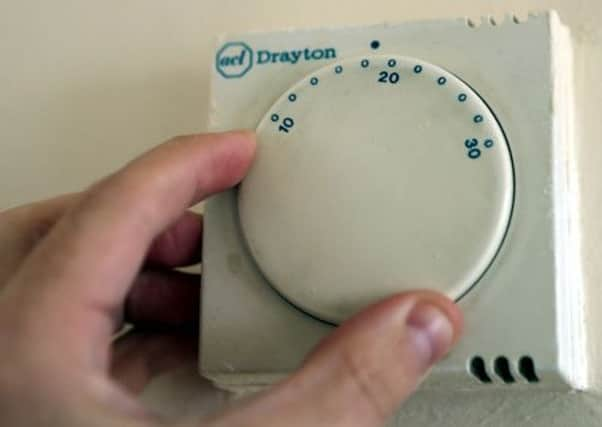Profit in offering hope to communities they serve


The social enterprise model is increasingly recognised as an ethical and socially inclusive way of doing business. It delivers community empowerment and social and environmental benefits and helps to mitigate against the worst effects of the rising inequality gap in our society.
Housing Associations (Registered Social Landlords “RSLs”) in Scotland have been excellent examples of social enterprises for five decades. There are some 200 throughout Scotland, all governed by boards of up to 15 volunteers (trustees if the RSL is charitable), elected by the members. The princely sum of £1 is payable on obtaining membership and is not refundable
Advertisement
Hide AdAdvertisement
Hide AdIn fact, members receive no payment whatsoever apart from legitimate expenses – all fixed and liquid assets including any surpluses are “asset locked” into the business, not distributed as dividends to the members but re-invested either in the RSL itself or the communities it serves. That might be a local community or a “community of interest” such as the disabled.
Regeneration
Established to regenerate or improve urban or rural areas with economic challenges, or to respond to demographic changes with supported or sheltered housing, they have maintained new or improved high-quality homes affordable to people in low-paid employment or on limited incomes. Five years into the economic downturn, RSLs continue to deliver for those who need us most. Link Group Ltd completed 299 new homes last year, 256 of which were for social rent.
Housing Associations have also delivered services, facilities and amenities in partnership with local community groups, local authorities, health boards and others. Link has developed GP and dental surgeries, corner shops, a healthy eating centre and play parks.
In the face of continuing recession, austerity measures, fuel poverty, welfare reforms and an emerging low-wage economy, RSLs are investing in support and advice services for older people and those with mental health issues or learning disabilities, providing training and employment initiatives for young people, energy-efficient buildings and committing to the Scottish Living Wage.
Link has halved the heating bills in its developments in Bridge of Allan and Kirkcaldy by replacing night-store electric heating by biomass and Combined Heat and Power systems respectively. We’ve also improved insulation in all 12 of our sheltered housing schemes (and installed PV panels on roofs where possible).
Many housing associations make it a condition in all building contracts that the contractor agrees to train and employ an appropriate number of local people during the development programme. The more we build and the more we expand related services, the greater our capacity to take on new staff.
Link has taken full advantage of the Scottish Government’s Community Jobs Fund, which sponsors work placements. By next March, we’ll have offered 40 such placements. Nine out of the first ten placements obtained full-time work or went on to further education. Link’s “peer education” and befriending services are based on positively using volunteers to support vulnerable people in Falkirk, Fife and Midlothian. This benefits not only the service users but also the volunteers themselves, improving self-esteem, confidence and capacity to obtain work. Some have joined the board of their organisation.
‘Asset lock’
We are proving by various methods of social impact measurement that the subsidy RSLs get to keep rents affordable is in fact an investment which repays itself many times over. Horizon Housing Association, for example, has demonstrated its Care and Repair Service provides a social return of £4 for every £1 that West Lothian Council invests in it.
Advertisement
Hide AdAdvertisement
Hide AdDespite all this evidence that Housing Associations are significant and successful social enterprises, there appears to be a reluctance among many of them that this is an appropriate label. “You can’t say we make profits” and “We’re not businesses” they cry. Nonsense! Our houses and services (and therefore our wages) are bought and paid for by our tenants and other customers and we run the risk of them going elsewhere if our products aren’t good enough. If we don’t make a profit, we go out of business. The difference between an RSL and a private company is that vital “asset lock”.
Link has just been recognised as Social Enterprise of the Year 2013 at the Social Enterprise Awards Scotland and we hope to gain the UK-wide accolade. These annual awards recognise the achievements of all social enterprises throughout Scotland – including the (somewhat reluctant?) RSLs. It’s now time we embraced all Housing Associations as social enterprises.
• Craig Sanderson is Chief Executive, Link Group Ltd, Social Enterprise of the Year Scotland 2013
SEE ALSO